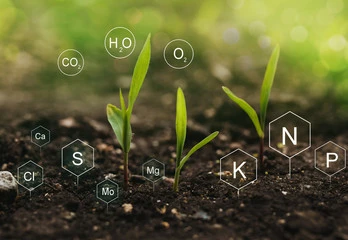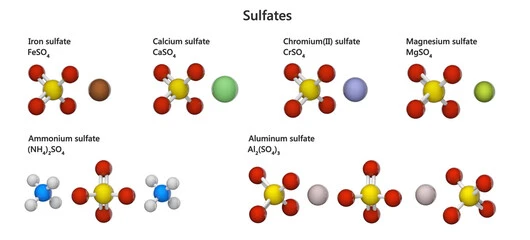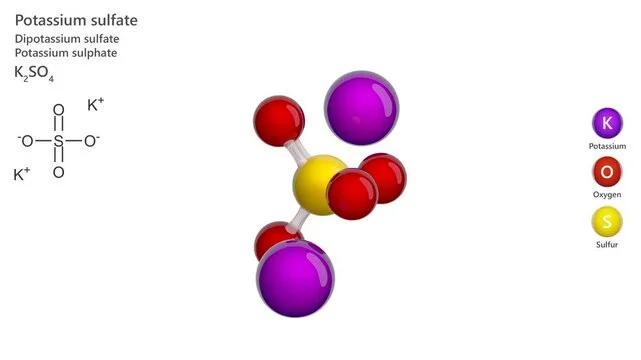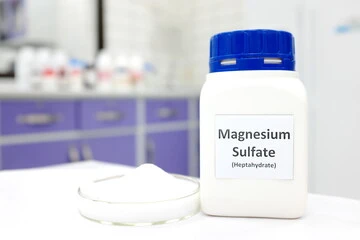Sulphur is an important element of any crop. Its role is building the structure of any plant. Major nutrients such as phosphorus, potash, nitrogen and Sulphur. It take a part in different physiological characters. Generally, plants require about a tenth as much Sulphur (S) as nitrogen (N), but Sulphur deficiencies restrict plant growth as surely and severely as nitrogen. The major role of Sulphur in all plants is in support of nitrogen in protein production.
Which Factors Are Highly Recommended?
There are two types of factors that should effect the not only commercial but also in agriculture. It react like a booster in crops. We have to define it in both categories. It is the primary source to produce sulphuric acid, which is the world’s most used chemical and a versatile mineral acid. In fertilizer, it convert into phosphates and also in nitrogen, potassium and Sulphate fertilizer.
Essential Plant Nutrient

Like Nitrogen, Potash and Phosphorus, it is essential plant regulator. There are three different ways that effects on agriculture field.
- it provides a direct nutritive value.
- Indirect nutritive value as soil amendment, especially for calcareous and saline alkali soils.
- Improve the efficiency of other essential plant nutrients, particularly nitrogen and phosphorus.
Functions of Sulphur in Plants
- It is a key component of amino acids like cysteine, cystine, and methionine, which are building blocks of proteins.
- It helps the plant to provide essential enzymes and coenzymes required for metabolic processes.
- Its role is directly involved in chlorophyll formation, Sulphur contributes indirectly by improving nitrogen metabolism, which is essential for chlorophyll production.
- Sulphur is vital for oil synthesis in oilseed crops like mustard, canola and mustard.
- His efficiency of nitrogen utilization and helps in the synthesis of vitamins like biotin and thiamine.
Development Of Chlorophyll
It is the basic developer of plants. It should develop the fertilizer and other nutrients into feeds. Its provide easy way for plants in photosynthesis. Chlorophyll is the green colour that allows plants to photosynthesize, which is how they produce energy, sugars, oils, and other compounds.
Other plant functions
- It is a component of three amino acids that are the building blocks of protein.
- It develops the respiratory process, which helps transfer energy and synthesize ATP in plant cells.
- It is a key component in the formation of cell membrane structures in plants.
Importance of Sulfur in PH Organization
It provide the defensive mechanism for plants to make glucosinolates and other defense compounds in plants like Brassicas. Its assimilation and sulfur metabolism can influence cellular pH by generating H⁺ or OH⁻ ions during biochemical processes. Deficiency symptoms include chlorosis yellowing of leaves, reduced growth, and impaired synthesis of proteins and secondary metabolites. Efficient sulfur uptake, assimilation, and transport are vital to maintaining plant health and productivity.
Sulphur Deficiency With Other Nutrients

It take a part in every kind of nutrients, especially phosphorus, potash and nitrogen. Here we define all types of nutrients, how to contribute with each others.
Nitrogen
Nitrogen and Sulphur both are contributing a vital role in the growth of plants. It is primary nutrient for making amino acid like cysteine and methionine, which are critical for protein synthesis, a nitrogen dependent process. Its deficiency can copying nitrogen deficiency symptoms, such as yellowing of younger leaves.
Phosphorus
Both are play a vital role in energy metabolism in plants, particularly in the formation of ATP, DNA, and coenzymes. Both are reduced protein synthesis impacts energy intensive processes. Their combination can improve crop yields and quality. example, in sugarcane, increasing high level biological yield. It provide Chlorophyll formation, Protein production, Oil synthesis and Enzyme activation.
Potassium (K)

Their combination is big booster for every plants. Potash regulate enzymes activities and boost stomata functions. SOP ( Sulphate of Potash) is no chloride and much low salt index. It is the preferred form of potassium to use. Potassium stimulates the growth of strong stems and gives the plant some disease resistance by promoting thickness of the outer cell walls.
Magnesium (Mg)

Magnesium centralized the chlorophyll production and Sulphur is required for synthesizing proteins and enzymes necessary for photosynthesis. Both are providing limited protein and enzyme formation which affects photosynthetic efficiency. Their combination with each other produce magnesium Sulfate (MgSo4) application. It is formed of water soluble, pure and crystal particles so as to cover magnesium deficiencies in your plants.
Micronutrients (e.g., Iron (Fe), Zinc (Zn), and Manganese (Mn)

With other micronutrients like iron, zinc and manganese are essential nutrients that provide food for different purposes. A lack of sulfur can reduce the efficiency of micronutrient utilization, particularly in enzymatic reactions and chlorophyll synthesis.
Calcium (Ca)

Calcium is a basic supplement for plants cells wall stability and metabolism. While sulfur contributes to the formation of structural components like proteins and lipids. It constructs the weekend structural protein synthesis of plants and calcium’s role in maintaining cell wall integrity.
Summary
Sulphur is an important element of any crop. Its role is building the structure of any plant. Major nutrients such as phosphorus, potash, nitrogen and Sulphur. It react like a booster in crops. it is essential plant regulator. It should develop the fertilizer and other nutrients into feeds. Its provide easy way for plants in photosynthesis. With phosphorus reduced protein synthesis impacts energy intensive processes. SOP ( Sulphate of Potash) is no chloride and much low salt index. Magnesium centralized the chlorophyll production and Sulphur is required for synthesizing proteins and enzymes necessary for photosynthesis.
FAQs
What is Sulphur?
It is a non metallic chemical element with the atomic number 16 and symbol S on the periodic table.
Is it nutrient or not?
Sulfur is not a nutrient that provides caloric energy or macronutrients like proteins, carbohydrates, or fats, but it is a micronutrient essential for various physiological functions.
Which nutrient is most important with It?
SOP is the most important nutrient with it.
Are micronutrient cannot useful without it?
Without Sulphur all micronutrients are not helpful for plants. It change these items into feeding method.


